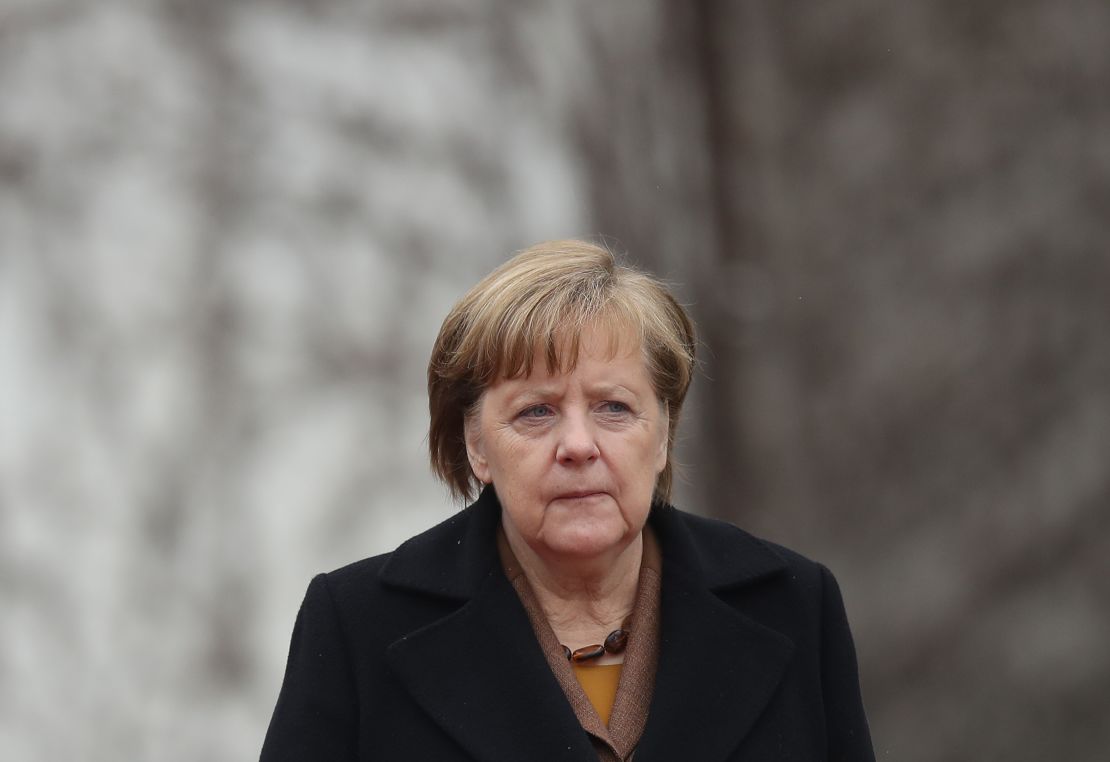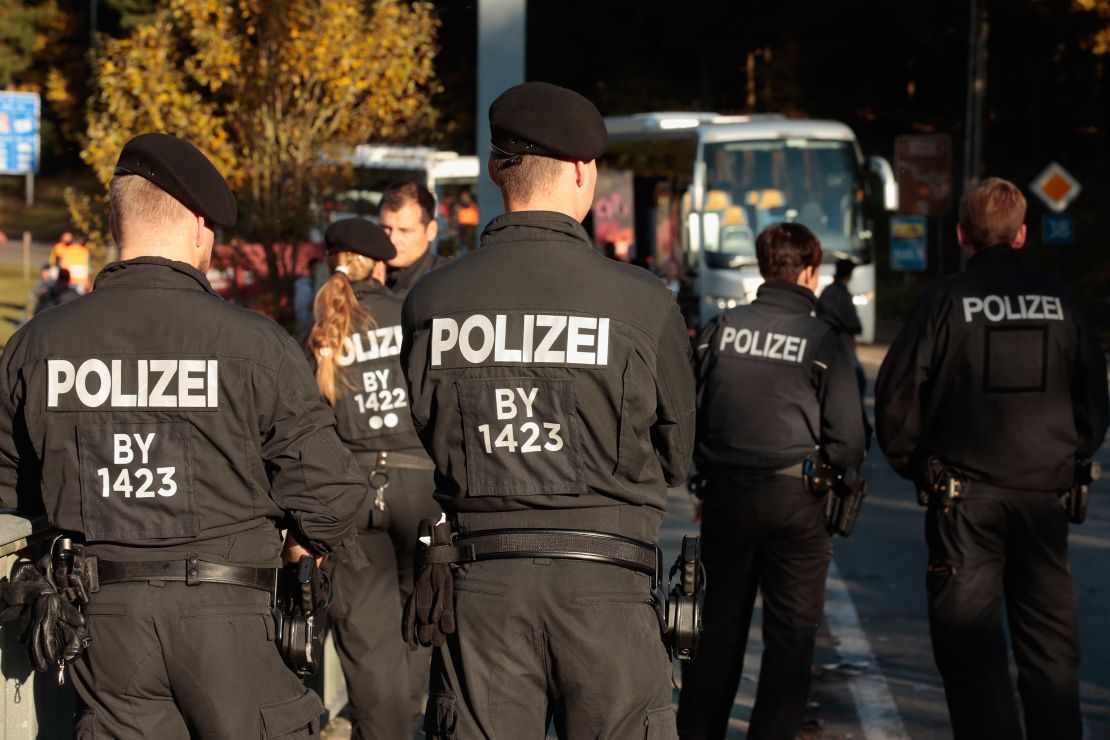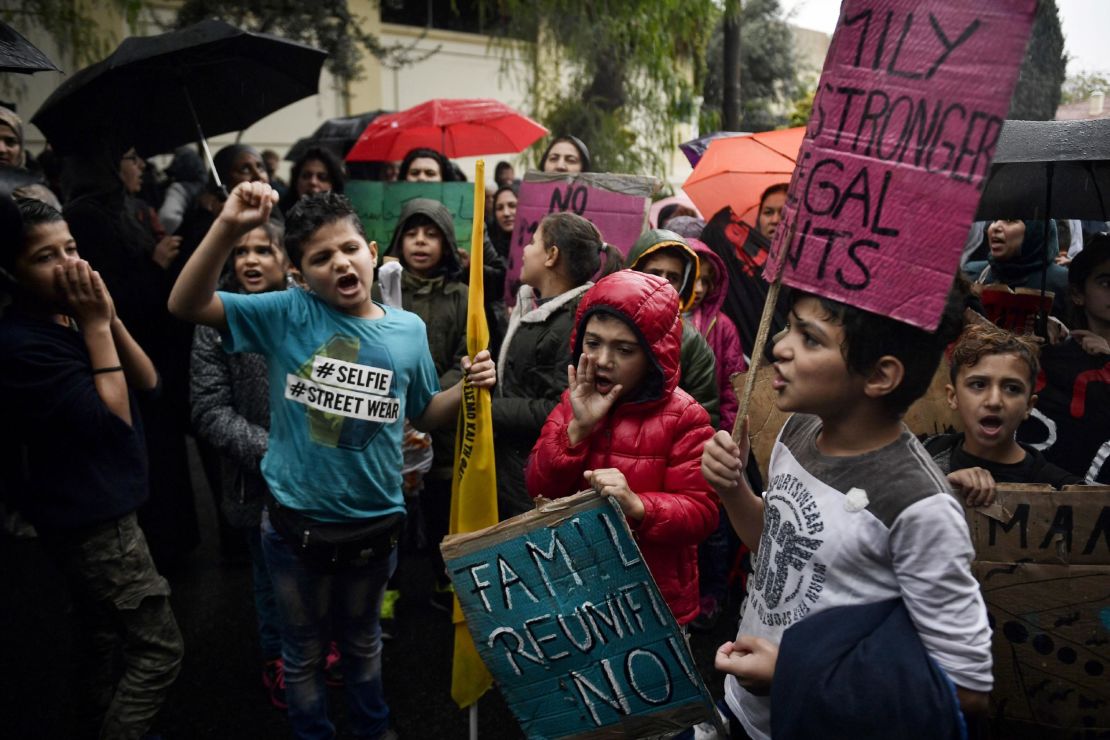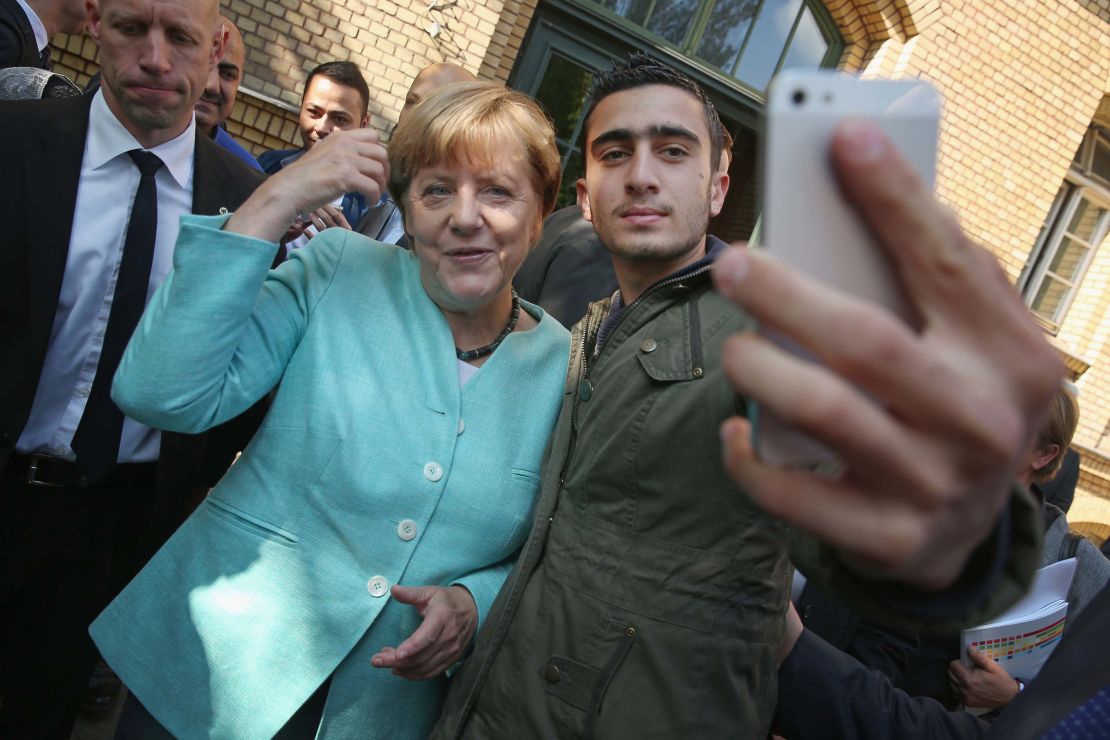In late summer 2015, as tens of thousands of refugees were arriving on Europe’s shores and trekking north to find a new home, German Chancellor Angela Merkel, already in power for a decade, made two decisions that would come to define her tenure.
The first came on August 25, 2015, when Merkel chose to allow Syrian refugees who had already registered elsewhere in the European Union to enter Germany and register there, temporarily suspending an EU law that requires asylum seekers to be returned to the first country they entered.
The following Friday, September 4, Merkel relaxed controls on the border with Austria, allowing tens of thousands of refugees stranded in Hungary to enter Germany.
Ever since, Merkel’s so-called open-door refugee policy has both been hailed as the epitome of a liberal, compassionate approach to migration and condemned as the nail in the coffin of the European project.
In reality, experts say, the “open door” was something of a myth – and is far from true today.
“It wasn’t that Merkel opened the borders,” said Christoph Nguyen, political scientist at Free University Berlin. “She just maintained the existing law of freedom of movement within Europe. It wasn’t so much an opening as a ‘not closing.’”

Without question, the events of 2015 mark a milestone in Germany’s history. Rarely had a European country faced such a rapid influx of people in peacetime.
As a result of those events, Germany has received more asylum applications than any other EU country since 2015 – more than 1.4 million, almost half of the total applications across the bloc – this far more than any other member state.
But for thoseseeking asylum in Germany in 2018, the door is far from open. And for many of those already inside, life is getting harder.
A deal struck between Merkel and her fractious interior minister Monday could see some asylum seekers sent back across the border with Austria, a clear sign of the Chancellor’s tougher approach.
“The restrictions (on entry) are rising from month to month,” Philipp Pruy, immigration lawyer at BC Legal in Regensburg, Germany, told CNN. “It’s extremely hard to immigrate to Germany. It’s even harder if you’re a refugee.”
‘Never an open door’
On September 13, 2015, just nine days after refugees began crossing the Austrian border into Germany in their tens of thousands, Merkel’s government reintroduced border controls in response to reports that some regions were not coping with the rapid arrival of so many newcomers.
Train traffic from Austria was temporarily halted and German police began patrolling road crossing points.
As far as an “open door” ever existed for refugees seeking to enter Germany, it had begun to close after less than two weeks.
Karl Kopp, director for European affairs at Pro Asyl, a refugee advocacy charity in Germany, believes Merkel – and Germany – can be proud of the decision to let the refugees in. “It was a humanitarian decision (to open the border),” he told CNN. “But it was also crisis management, never an open door.”
Controls have remained on the Austrian border ever since. On June 1 this year, the Federal Police Directorate in Munich, Bavaria, implemented a further expansion of the border patrol with the goal of combating cross-border crime and illegal immigration.

Thousands of people trying to enter Germany are already turned away at the border every year. In 2017, 7,504 migrants were pushed back at Germany’s land borders, more than 90% of them at the Austrian border, according to government statistics.
And since border controls were reintroduced, the number of people seeking asylum in Germany has plummeted, from around 722,000 in 2016 (many of whom arrived in the country the previous September) to 198,000 the following year. Numbers are projected to fall further in 2018, back to the levels of 2013-14.
Why then the continued talk of a migration crisis in Germany? The reasons are two-fold, according to Nguyen, political scientist in Berlin: the challenge of integrating the new, and often very visible, refugee communities and the sudden growth of the far-right, anti-immigration Alternative for Germany (AfD) in the wake of summer 2015.
The AfD “became a movement with legs when the refugee situation amplified,” Nguyen said. Now other parties are responding – and trying to win back votes – by becoming tougher on immigration, he explains, even though the underlying problem (the number of refugees arriving) “is not present anymore.”
Families kept apart
Most people who crossed the border into Germany in September 2015 were Syrians fleeing a brutal civil war.
Initially, most of them were given full refugee status, allowing them to apply to bring their close family members to Germany. Just one in 2,000 were given a lesser, subsidiary status.
From early 2016, more and more Syrians were given a temporary form of protection that lasts only a year. More than one in four applicants received that status in 2016, rising to almost one in two in 2017.
At the same time, the German parliament suspended the right for those with subsidiary status to be reunited with their families.
Many of the hundreds of thousands of Syrians now living in Germany are therefore separated from their wives, husbands or children.
“These are deterrence measures,” said Kopp, referring to the policy changes in early 2016. “And it’s really not good for integration. People can’t move forward if their family is still living in limbo. People lose faith.”

Deportations on the rise
In a move that led to international outrage, Germany began deporting some failed asylum seekers to Afghanistan in December 2016, despite reports that the security situation in the country was deteriorating. The flights continued in 2017, with 470 Afghans deported that year.
BC Legal’s Pruy is extremely critical of the deportations. “You cannot deport people to a crisis region,” he said. “We are a rich country, we are a civilized country and we cannot allow people to be deported to a country where there is a civil war… Thousands of people are dying every year.”
He’s also frustrated that the criteria for deportation have recently been expanded. On June 6 this year, while acknowledging that her own foreign ministry had produced a report showing that the security situation in Afghanistan had not changed, Merkel announced that any remaining restrictions would be lifted and all failed asylum seekers from Afghanistan would face deportation.
In a statement to CNN, the German Foreign Office said that “the situation in Afghanistan continues to be regionally diverse and volatile” and that “there is always a case-by-case consideration by the competent authorities” regarding the situation of individuals eligible for deportation.
‘Drastic tightening of asylum law’
For those who are still in the asylum process, Merkel and her government have introduced a raft of restrictive measures since September 2015 that Pruy describes as “a drastic tightening of the asylum law.”
Just a few weeks after refugees were seen snapping selfies with “Mutti (Mama) Merkel” a new piece of legislation entered into force accelerating the asylum process and replacing cash support with vouchers for asylum seekers living in reception centers. In early 2016, security forces were given the right to check cellphone data of new arrivals, a move criticized by human rights groups.
Up to January this year, almost 9,000 asylum seekers had their phone data examined, according to government statistics.

The new laws have also led to quicker decision-making on asylum claims, but that doesn’t mean greater accuracy or efficiency, Pruy said.
That’s borne out by data from the appeals system. Since 2016, tens of thousands of asylum seekers have had their rejected claim overturned and been granted refugee status on appeal.
And Kopp is concerned that the effort to speed up deportations is leaving many people without the time to appeal and potentially have their right to protection acknowledged. “It’s a matter of life and death for them,” he said.
‘The refugee chancellor doesn’t exist’
While Merkel has never publicly said she regrets her actions in late summer 2015, she has repeatedly pledged to drastically reduce the number of refugees arriving in Germany, replacing her infamous refrain of those weeks – “we can do it” – with another: “The events of 2015 must not be repeated.”
In apparent pursuit of that goal, she helped strike a controversial deal between the EU and Turkey designed to stop arrivals in Greece and supports a plan to seek similar deals with African countries to stem migration flows even earlier.
“The number of asylum seekers in Germany has gone down,” said Merkel in a speech to parliament last Thursday, ahead of the EU summit. “But we must not be satisfied with that – I want to say that emphatically.”
Merkel’s vocal support for the agreement reached at that summit – which focuses solely on bringing “flows to a halt” – only reaffirms her goal, as does her compromise deal with her interior minister earlier this week.
To Kopp, it is laughable that anyone still views Merkel and Germany as exemplars of refugee policy. “To pretend there is still a welcoming environment in Germany is wrong,” said Kopp. “The Merkel of summer 2015 – the refugee chancellor – doesn’t exist any more.”
CNN’s Nadine Schmidt contributed to this report.



